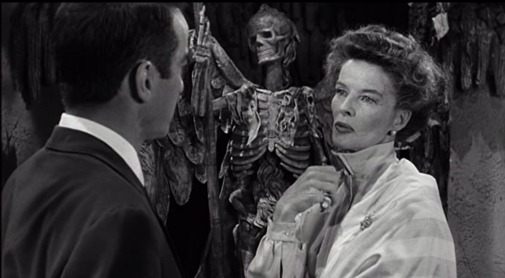By Cláudio Alves...
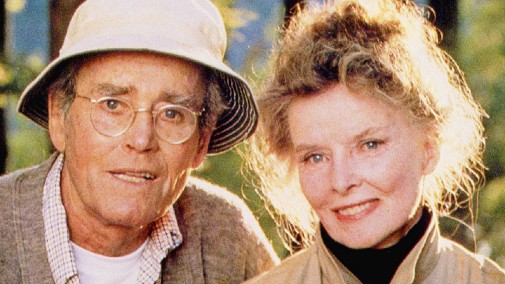
Before we wrap up our coverage of 1981, we must talk about the Oscar record that was established that season and has never been broken since.
By winning the Best Actress trophy for On Golden Pond, Katharine Hepburn became the most awarded actor in Academy Awards history, with four victories. That's not the only factor that makes her awards run so interesting. Famously, she was part of the only Best Actress tie when she and Barbra Streisand both won in 1968. Then, there's the fact that her first win came from the biggest Oscar eligibility period ever (17 months, 1932-33) and that the gap between her first win and her last is the longest for any actor (48 years). All this and she was never present to accept her little golden men. Whether you love her or not, this Old Hollywood star was truly one of a kind...
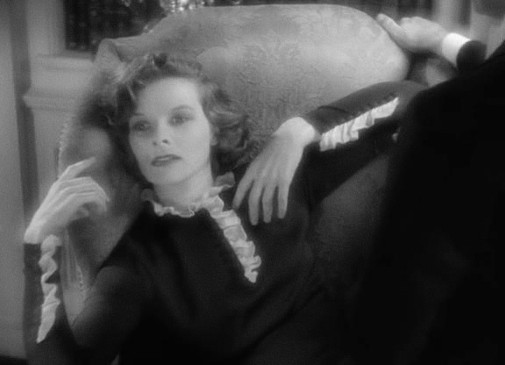
After a mildly inconsistent career onstage, Katharine Hepburn made her first movie in 1932 for RKO. The picture was a drama called A Bill of Divorcement in which she shone, something that didn't go unnoticed by the studio that henceforth put all its efforts into making the ingenue into the next big star. Her three following movie roles saw her dress up like a silver moth, bring to life one of American literature's most beloved heroines, and offer 1930s audiences their version of Rachel Berry. It was for that last effort, Morning Glory, that Hepburn would be Oscar-nominated and eventually win, sealing the deal on her stardom.
For the past 87 years, many have wondered why the actress was nominated for that instead of George Cukor's Little Women. It certainly feels strange, considering that the Louisa May Alcott adaptation scored a Best Picture nod while Morning Glory wasn't recognized in any category beyond Best Actress. The nature of her role in Morning Glory was probably what pushed that film to Oscar glory. After all, the Academy has a well-known affection for actors playing actors, and the character of Eva Lovelace is defined by her ambitions as a performer. She's a young actress, eager to succeed in show business and Hepburn plays her with single-minded intensity from minute one.
It's a tiresomely consistent performance and only a drunken interlude offers the actress any opportunity to add variation to this obnoxious character. She's best when trying to be funny and worst when attempting to make sense of the movie's romantic conclusion. The problems of the script ultimately defeat Hepburn, but that didn't stop the Academy from handling her the Oscar. After that, it would take many decades before she would win again, though nominations continued to come her way. From 1933 to 1967, Hepburn's career took many sharp turns, from box-office poison to legend-status, through political controversy, a much-publicized romance with Spencer Tracy, and eight additional Oscar nominations.
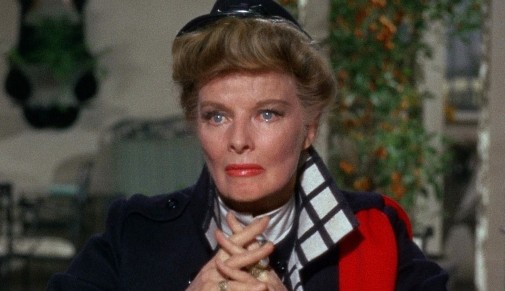
That very same romance would be at the center of her second Best Actress win, which came in 1967 for the last film the lovebirds ever did together, Guess Who's Coming to Dinner. Stodgy, stale, and retrograde, this Stanley Kramer lecture on racial equality as seen through the eyes of white liberals is a dreadful thing. Still, the sentimental appeal the movie acquires thanks to the histories of Hepburn and Tracy adds some value to the enterprise. This was the actor's last movie, as he died not long after shooting wrapped. That real-life tragedy, as well as the movie's popularity with a certain crowd (it was a box office hit and Best Picture nominee), convinced the Academy to give Hepburn a second Oscar.
Honestly, I wish I could love this performance as some do, but it's a repetitive work with little to no depth. Hepburn seems to be always on the verge of tears, oscillating between beatific admiration for Tracy's patriarch and bland motherly devotion. Her initial reaction to Sidney Poitier as her daughter's black fiancée is so overdone that it's comical and only an acidic scene with a prejudiced employee sees the actress wake up from her sentimental stupor. Reading up on the behind the scenes details of the movie offers some explanation to Hepburn's lackluster work, but that doesn't make her victory any less undeserving.
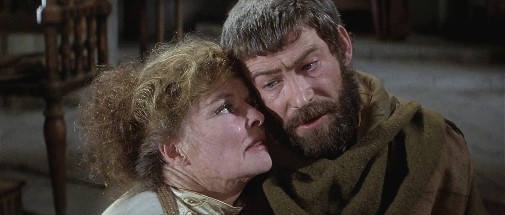
The following year, Hepburn won again, becoming the second woman to win back-to-back Best Actress trophies after Luise Rainer in the 30s. In The Lion in Winter, Katharine Hepburn is Eleanor of Aquitaine, the imprisoned wife of Henry II, King of England in the 12th century. Not that the production makes any pretension of being remotely bound to the realities of history. This is a sordid melodrama first and foremost, a soap opera set in Medieval times whose narrative serves as a pretext to gather a bunch of illustrious actors and have them throw shade at each other in increasingly hyper-literate ways. It's glorious, that's what it is.
A lot of that is due to its perfect cast lead by Peter O'Toole and Hepburn, who sinking their teeth into the most succulent of roles and clash their contrasting acting styles with such force the screen seems to vibrate. As Elanor, Hepburn is a force of nature, elevating the Shakespeare-lite witticisms into blunt instruments of verbal warfare. Her insults are no vacuous wordplay, they are the overflow of poison that comes from a maltreated soul, one so consumed by cruelty that the barrier between love and hatred is nonexistent. It's a riveting spectacle, but also frightening, her wrath pulsing with genuine pain. To see her and O'Toole play against each other is to see the most toxic sort of foreplay, erotically charged and drowning in viperous abandon.
A marvelous performance indeed and undoubtedly Oscar-worthy too. The same, unfortunately, can't be said about her fourth win, for 1981's On Golden Pond. I confess I have little affection for this syrupy swan song to Henry Fonda, although there are some metatextual elements to do with its actors that make it mildly captivating. As for Katharine Hepburn's performance as the wife of Fonda's curmudgeon, it's a nice effort with little challenges but a couple of nice moments. At the very least, her chemistry with the coprotagonist is believable and the panic she projects during some dramatic scenes is admittedly moving.
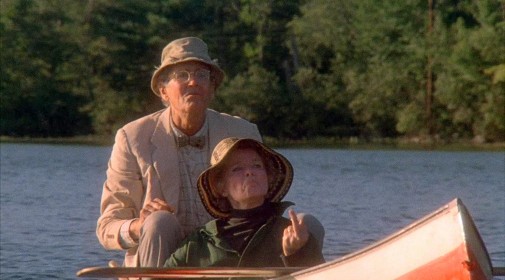
It's still not even close to Oscar-worthy in my book. That's the sad thing about Hepburn's historic record. For one of the best actresses to have ever stepped in front of a camera, the most awarded performer in Oscar history, Katharine Hepburn's wins offer a rather lousy representation of her talents. Apart from The Lion in Winter, they are mediocre works that ask little of the actress and there's not even the excuse of her being such an overwhelming lock that another winner was impossible. Hell, in 1968 the results were so close they produced a tie.
All that complaining aside, I do love Katharine Hepburn and wouldn't want to finish a piece about her in such a sour note. Thinking of that and what was previously done for Meryl Streep and Paul Newman, here go some choices that might've made for more justifiable Oscar victories:
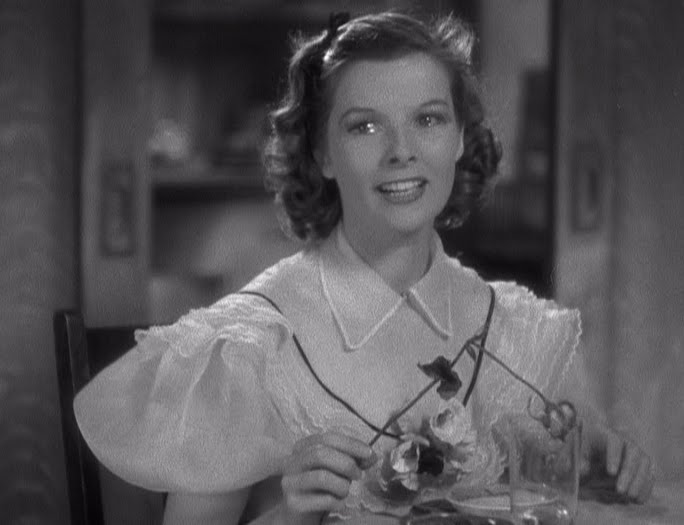
ALICE ADAMS (1935)
George Stevens was one of Hepburn's best directors and, in this 1935 melodrama cum comedy, he got her to give one of her most relaxed performances. She's hardly ever been funnier than here, but some of the most serious scenes are of equal mastery, showing realistic sorrow and desperation amid the laughs.
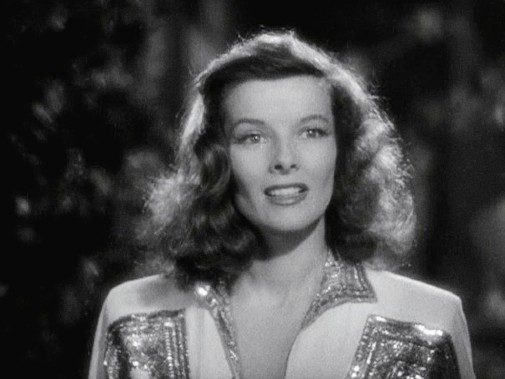
THE PHILADELPHIA STORY (1940)
After a string of flops in the late 30s, Hepburn's movie career was at risk, but she was quick to buck the trend with a role made for her. The Philadelphia Story is a pivot point of great importance in the actress's illustrious career as well as her best movie star performance. It allows Hepburn to use her screen persona as a starting point for a razor-sharp characterization. There's also great romantic chemistry and hilarious drunken shenanigans for those interested.
SUDDENLY, LAST SUMMER (1959)
In this Tennessee Williams adaptation, Hepburn turns motherhood into a perversion viler and more disgusting than even the act of eating human flesh. This is a poisonous wonder, an actress relishing in her character's malevolence in such a way that it's impossible to take our eyes off of her.
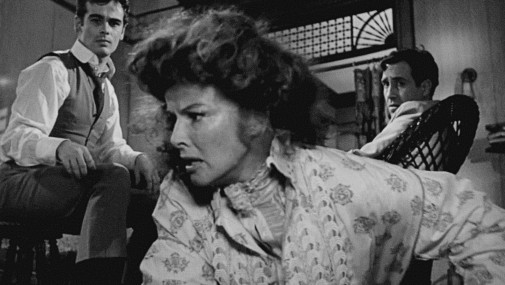
LONG DAY'S JOURNEY INTO NIGHT (1962)
Speaking of grand plays adapted to the screen and the brilliance of Hepburn, there's nothing else in her career that comes even close to her Mary Tyrone in Long Day's Journey Into Night. Wrecked and broken, this performance is more akin to a demonic possession than a star turn, a public self-evisceration of a damaged soul that's upsetting in its grotesque excess and heartbreaking in its emotional honesty.
Those four highlighted performances are sterling achievements but, in truth, we could list half a dozen more and still have enough for another piece. Of her nominated works, David Lean's Summertime deserves an honorable mention for its lovelorn melancholy. Not that she could ever hope to win against Anna Magnani's titanic performance in The Rose Tattoo, but it's still one of her best. As for the non-nominated works, I'd like to mention her 1937 self-parody in Stage Door, the 1938 comedy double-whammy of Bringing Up Baby and Holiday as well as her work in 1949's Adam's Rib, her best movie with Tracy as far as I'm concerned.
So, in conclusion, the answer to the question of "did Katharine Hepburn deserve four Oscars?" is yes. Though, not for, at least, three of those performances.
More from our 1981 retrospective
- The 1981 Supporting Actress Smackdown
- Kathleen Turner's sizzling debut in Body Heat
- Meryl's first Best Actress nomination
- Harrison Ford in Raiders of the Lost Ark
- Jessica Harper in Pennies From Heaven
- Marilia Pera in Pixote
- Only When I Laugh and the Razzies
- Kathryn Harrold in Modern Romance
- Vintage: Pop Culture in 1981
- Vintage: Sexiest People Born in 1981
